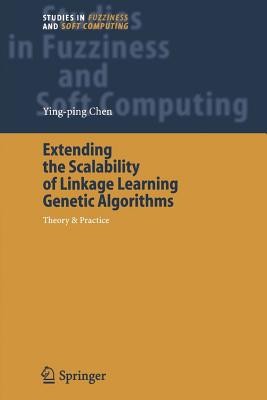
- We will send in 10–14 business days.
- Author: Ying-Ping Chen
- Publisher: Springer
- Year: 2010
- Pages: 120
- ISBN-10: 3642066712
- ISBN-13: 9783642066719
- Format: 15.6 x 23.4 x 0.8 cm, softcover
- Language: English
- SAVE -10% with code: EXTRA
Extending the Scalability of Linkage Learning Genetic Algorithms (e-book) (used book) | bookbook.eu
Reviews
Description
Genetic algorithms (GAs) are powerful search techniques based on principles of evolution and widely applied to solve problems in many disciplines. However, most GAs employed in practice nowadays are unable to learn genetic linkage and suffer from the linkage problem. The linkage learning genetic algorithm (LLGA) was proposed to tackle the linkage problem with several specially designed mechanisms. While the LLGA performs much better on badly scaled problems than simple GAs, it does not work well on uniformly scaled problems as other competent GAs. Therefore, we need to understand why it is so and need to know how to design a better LLGA or whether there are certain limits of such a linkage learning process. This book aims to gain better understanding of the LLGA in theory and to improve the LLGA's performance in practice. It starts with a survey of the existing genetic linkage learning techniques and describes the steps and approaches taken to tackle the research topics, including using promoters, developing the convergence time model, and adopting subchromosomes.
EXTRA 10 % discount with code: EXTRA
The promotion ends in 19d.13:41:40
The discount code is valid when purchasing from 10 €. Discounts do not stack.
- Author: Ying-Ping Chen
- Publisher: Springer
- Year: 2010
- Pages: 120
- ISBN-10: 3642066712
- ISBN-13: 9783642066719
- Format: 15.6 x 23.4 x 0.8 cm, softcover
- Language: English English
Genetic algorithms (GAs) are powerful search techniques based on principles of evolution and widely applied to solve problems in many disciplines. However, most GAs employed in practice nowadays are unable to learn genetic linkage and suffer from the linkage problem. The linkage learning genetic algorithm (LLGA) was proposed to tackle the linkage problem with several specially designed mechanisms. While the LLGA performs much better on badly scaled problems than simple GAs, it does not work well on uniformly scaled problems as other competent GAs. Therefore, we need to understand why it is so and need to know how to design a better LLGA or whether there are certain limits of such a linkage learning process. This book aims to gain better understanding of the LLGA in theory and to improve the LLGA's performance in practice. It starts with a survey of the existing genetic linkage learning techniques and describes the steps and approaches taken to tackle the research topics, including using promoters, developing the convergence time model, and adopting subchromosomes.


Reviews